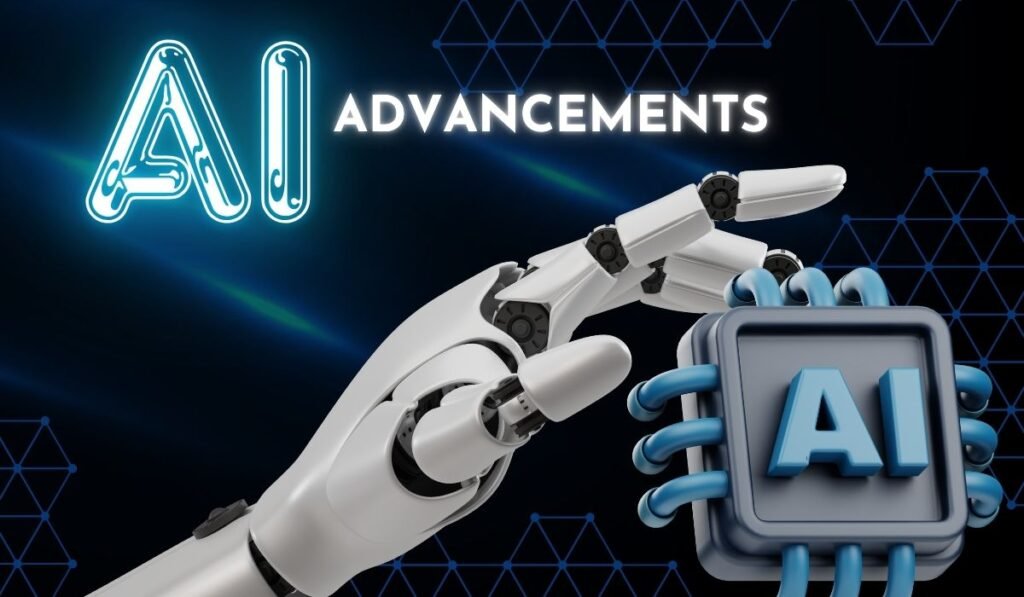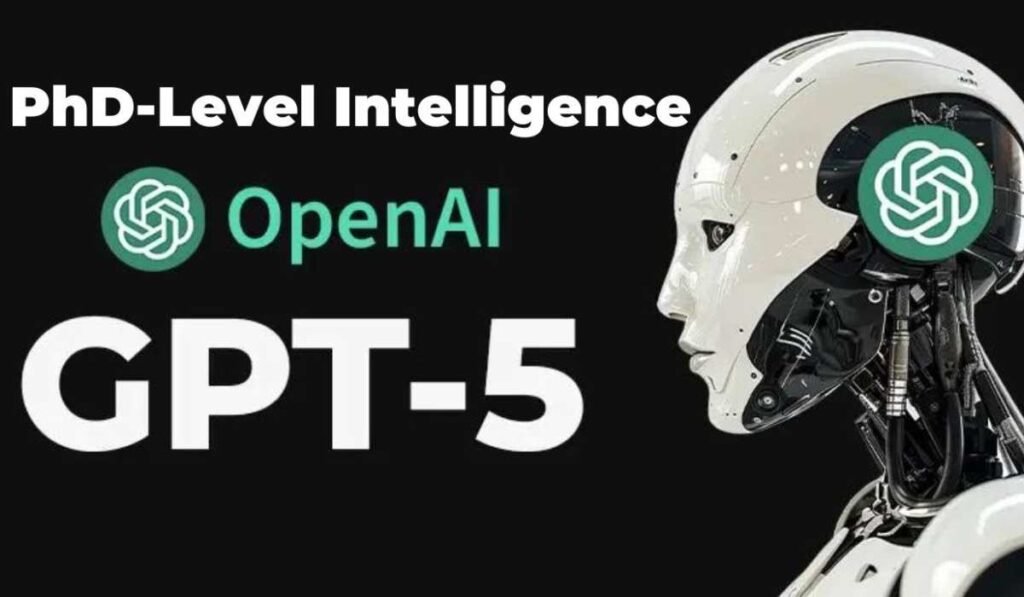The world of artificial intelligence is evolving at a breakneck pace, and the AI advancements in 2024 have been nothing short of revolutionary. From new language models to groundbreaking applications in various industries, these innovations are reshaping our technological landscape. In this comprehensive exploration, we’ll dive deep into ten of the most exciting AI advancements of 2024, examining their potential implications and the future they’re helping to create.
1. OpenAI’s Project Orion: The Next Evolution in Language Models
One of the most significant AI advancements in 2024 comes from OpenAI with their new project codenamed Orion. This next-generation large language model builds upon the foundation laid by their previous work, including the mysterious “Strawberry” model.
Key Features of Project Orion:
- Improved logic and reasoning capabilities
- Enhanced performance on complex tasks, including mathematics
- Utilizes synthetic data generated by the Strawberry model
- Potential for continuous improvement through a feedback loop
OpenAI’s approach of using synthetic data to train Orion could revolutionize how AI models are developed, potentially addressing concerns about data privacy and copyright issues. However, this method also raises questions about the potential for “model collapse,” a theoretical concept where models trained on AI-generated data might become less effective over time.
2. Google’s Expanded Gemini Family
Google has further cemented its position as a leader in AI innovation with the introduction of new models in the Gemini family. This expansion represents a significant AI advancement in 2024, offering a range of solutions tailored to different use cases and computational requirements.
New Additions to the Gemini Family:
- Gemini 1.5 Flash 8B: A smaller, more efficient model
- Gemini 1.5 Pro: Enhanced performance on coding and complex prompts
- Improved Gemini 1.5 Flash: Significantly upgraded capabilities
These new models showcase Google’s commitment to providing diverse AI solutions, catering to various needs from mobile applications to professional-grade tasks.
3. Anthropic’s Claude 3 Series
Anthropic has made significant strides with their Claude 3 series, offering improved performance and new features:
- Claude 3.5 Sonnet: The most advanced model in the series
- Improved system prompts for better control and output
- New “artifacts” feature for code generation and execution
The release of Claude’s system prompts offers unprecedented transparency in how AI models are instructed, providing valuable insights for developers and researchers.
4. Breakthrough in AI-Powered Scientific Research
SakanaAI, a Tokyo-based startup, has introduced an AI system capable of automating the entire scientific research process. This AI advancement could potentially accelerate scientific discovery across various fields.
Key Features:
- Automated idea generation and evaluation
- Code writing and experiment execution
- Scientific paper writing and peer review
- Cost-effective research at $15 per paper
While the quality of AI-generated papers is still mixed, this technology shows promise in democratizing research and accelerating the pace of scientific progress.
5. Advancements in AI for Healthcare
2024 has seen remarkable progress in applying AI to healthcare, with new models capable of:
- Detecting cancer and viral infections at nanoscale precision
- Analyzing cells 5,000 times smaller than a human hair
- Early detection of potential health issues
These advancements could revolutionize medical diagnostics and treatment, potentially saving countless lives through early detection and intervention.
6. AI in Climate Change Solutions
Researchers have leveraged AI to make significant progress in renewable energy technology:
- Development of light-harvesting molecules 4 times more stable than previous versions
- Potential for more efficient and longer-lasting solar panels
This AI advancement demonstrates the technology’s potential to address global challenges like climate change.
7. Real-Time Game Generation with AI
A groundbreaking development in 2024 is the ability of AI to generate video game graphics in real-time:
- AI model capable of hallucinating a game of 1993’s Doom in real-time
- Each frame is generated on the fly, without a traditional game engine
This technology could revolutionize game development and open new possibilities for interactive entertainment.
8. Cerebris: Setting New Speed Records in AI Processing
Cerebris has emerged as a strong competitor in the AI hardware space, claiming to have developed the world’s fastest AI inference system:
- Outperforms previous speed leader, Grok
- Potential to enable more complex real-time AI applications
This advancement could have far-reaching implications for various industries requiring rapid AI processing.
9. Meta’s Mixed Reality Glasses
While Meta has scrapped plans for a high-end VR headset to compete with Apple’s Vision Pro, they’ve shifted focus to developing advanced mixed reality glasses:
- Building on the success of Meta Ray-Bans
- Aiming for a more wearable, everyday form factor
- Potential features include heads-up displays and augmented reality capabilities
Though not expected until 2027, this project represents an exciting direction for wearable AI technology.
10. Expansion of AI in Consumer Electronics
2024 has seen a surge in AI integration across various consumer electronics:
- Amazon’s revamped Alexa with generative AI capabilities
- Wyze cameras with AI-powered searchable video content
- Apple’s potential AI enhancements for the iPhone 16
These advancements are bringing sophisticated AI capabilities to everyday devices, transforming how we interact with technology in our daily lives.
The Impact of AI Advancements on Society and Industry
The AI advancements in 2024 are set to have profound implications across various sectors:
1. Scientific Research
- Accelerated discovery in fields like biology, physics, and materials science
- Potential for AI to uncover patterns and connections humans might miss
2. Healthcare
- Improved diagnostics and early detection of diseases
- Personalized treatment plans based on AI analysis of patient data
3. Climate and Energy
- More efficient renewable energy technologies
- AI-driven climate modeling and prediction
4. Entertainment and Gaming
- New forms of interactive and personalized content
- Reduced costs and time in game development
5. Business and Productivity
- Enhanced decision-making tools powered by advanced AI
- Automation of complex tasks across various industries
Challenges and Considerations
While the AI advancements of 2024 offer exciting possibilities, they also present several challenges:
- Ethical Concerns: As AI becomes more powerful, questions about its responsible use and potential misuse become more pressing.
- Job Displacement: The automation of complex tasks could lead to significant changes in the job market.
- Data Privacy: The use of vast amounts of data to train AI models raises concerns about privacy and data security.
- Regulatory Landscape: Governments are grappling with how to regulate rapidly advancing AI technologies effectively.
- AI Safety: Ensuring that increasingly powerful AI systems remain aligned with human values and interests is a critical challenge.
Embracing the AI-Driven Future
The AI advancements in 2024 have set the stage for a new era of innovation and discovery that will reshape our world in profound ways. From revolutionizing scientific research to transforming everyday consumer technology, these developments promise to enhance our capabilities, improve decision-making, and open up new frontiers of possibility.
As we marvel at the potential of AI, it’s crucial to approach these advancements with a balance of enthusiasm and caution. The responsible development and deployment of AI technologies will be key to harnessing their benefits while mitigating potential risks.
The future shaped by these AI advancements is both exciting and challenging. It calls for ongoing dialogue between technologists, policymakers, and the public to ensure that AI serves the best interests of humanity. As we continue to push the boundaries of what’s possible with AI, we must remain committed to steering this powerful technology towards a future that is not only technologically advanced but also ethically sound and beneficial for all.
Project Orion is a next-generation large language model developed by OpenAI, featuring improved logic and reasoning capabilities, enhanced performance on complex tasks, and the use of synthetic data for training.
The Gemini family includes new models designed for diverse applications, such as Gemini 1.5 Flash for efficiency and Gemini 1.5 Pro for enhanced coding performance, showcasing Google's commitment to providing tailored AI solutions.
Claude 3 series offers improved system prompts for better control, the advanced Claude 3.5 Sonnet model, and a new 'artifacts' feature for code generation and execution.
AI is automating the entire scientific research process, including idea generation, experiment execution, and paper writing, potentially accelerating discovery and reducing costs.
AI advancements in healthcare include detecting cancer and viral infections with high precision and analyzing cells at a nanoscale, which could revolutionize diagnostics and treatment.
AI is being leveraged to develop more efficient renewable energy technologies, such as stable light-harvesting molecules and improved solar panels.
AI's ability to generate video game graphics in real-time could transform game development, allowing for innovative and interactive entertainment experiences.
Cerebris has developed the world's fastest AI inference system, outperforming previous models and enabling more complex real-time AI applications.
2024 has seen AI integrated into consumer electronics, including enhanced Alexa capabilities, AI-powered video content in Wyze cameras, and potential AI features for the iPhone 16.
Challenges include ethical concerns regarding responsible AI use, potential job displacement due to automation, data privacy issues, and the need for effective regulation of AI technologies.





